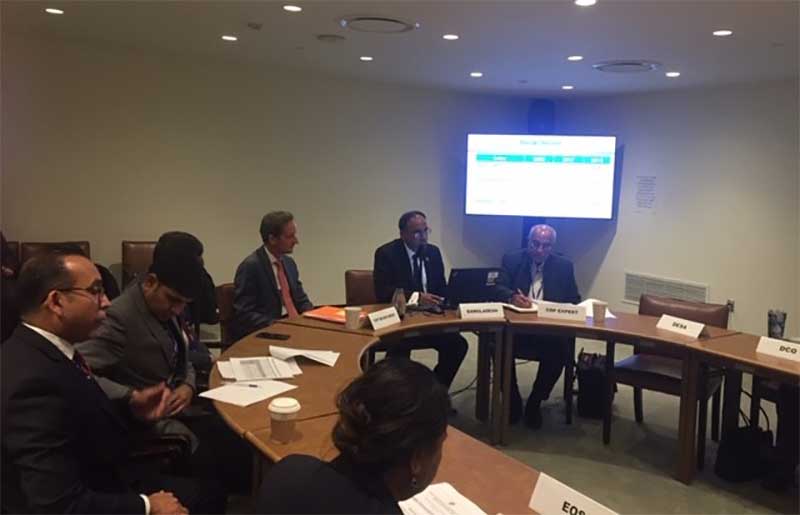
Dr Debapriya Bhattacharya, Distinguished Fellow, CPD and Member of United Nations Committee for Development Policy (CDP), stated that Bangladesh is arguably facing the biggest losses of international support measures (ISM) out of all the graduating least developed countries (LDCs). Following LDC graduation, the country’s trade preferences will decline, its cost of external borrowing has already increased. Indeed, Bangladesh showcases the achievements as well as reveals the challenges of the graduating LDCs.
Dr Debapriya Bhattacharya made these comments while chairing a session at an Expert Group Meeting, held during 11-12 November 2019 at the UNHQ in New York. This meeting was organised by the Committee for Development Policy (CDP) Secretariat, the UN Office of the High Representative for the Least Developed Countries, Landlocked Developing Countries and Small Island Developing States (OHRLLS) and the Executive Office of the Secretary General (EOSG).
At the session, Dr Bhattacharya differentiating between traditional and new sources of finance discussed their access barriers and utilisation challenges of current forms of external development finance. He particularly focused on challenges relating to blended finance and climate finance.
Mr Abdur Rauf Talukder, Finance Secretary, Government of Bangladesh in his presentation explained the challenges Bangladesh will face due to dual transition of being a developed country as well as a lower-middle income country. Bangladesh will lose the benefits of unilateral market access under current ISM measures, as a developing country. As a lower-middle income country, multilateral lending institutions have already started applying higher interest rates on their loans, and economic growth might suffer from the gradual reduction of concessional aid.
Mr Masud Bin Momen, Permanent Representative of Bangladesh to the UN, noted the top priority now was how to incentivise bringing in the private sector (pension funds, etc.). Mr Momen also addressed the ongoing Rohingya crisis in Bangladesh. According to him, this crisis has increased the risk of radicalisation and trafficking. Dr Bhattacharya added that this refugee crisis spilling over into Bangladesh represented a totally new dimension, as various LDCs now must deal with cross-border challenges.
Around fifty participants, including high level representatives and experts from LDCs, the UN DSG, UN organisations, and outside experts, were present at the event.



